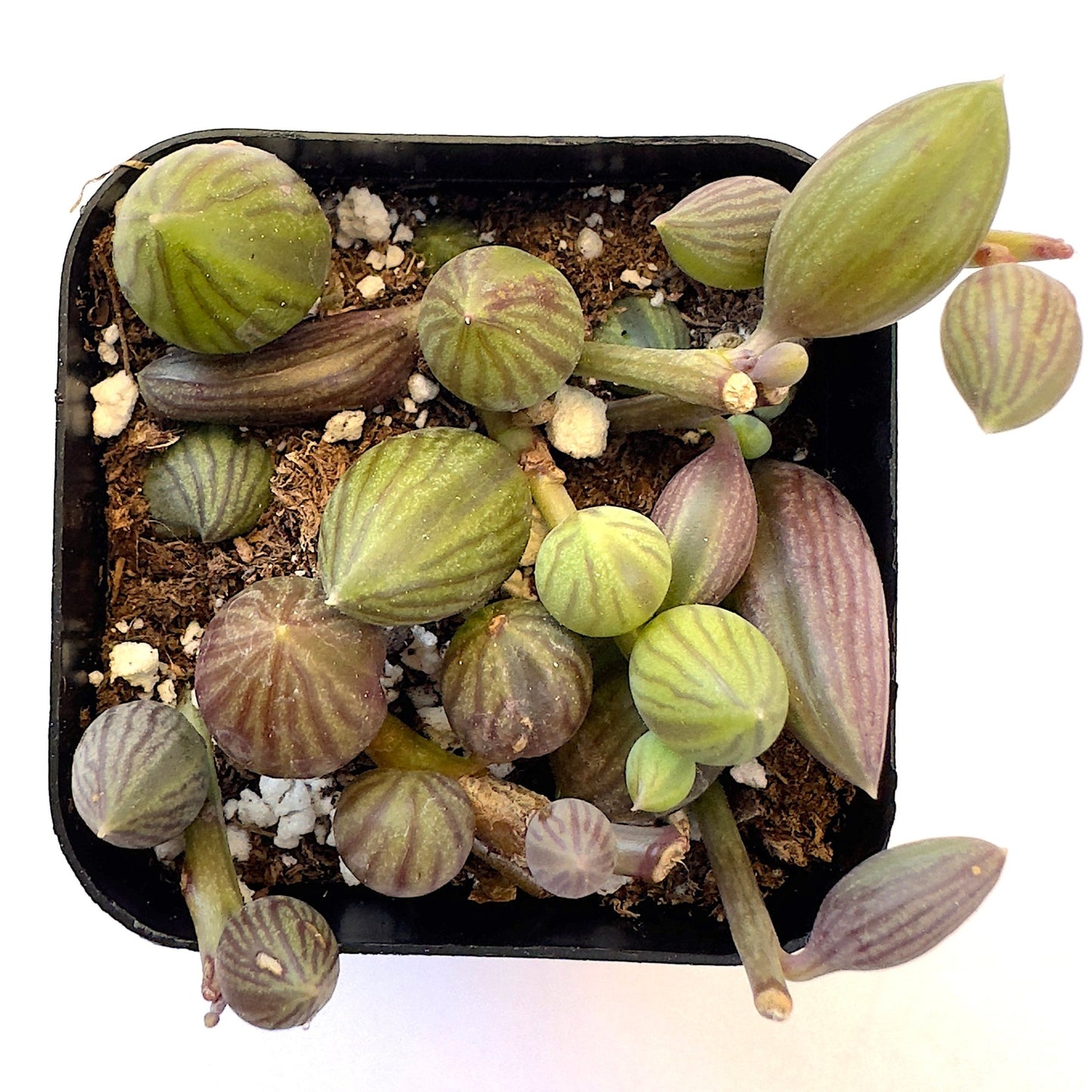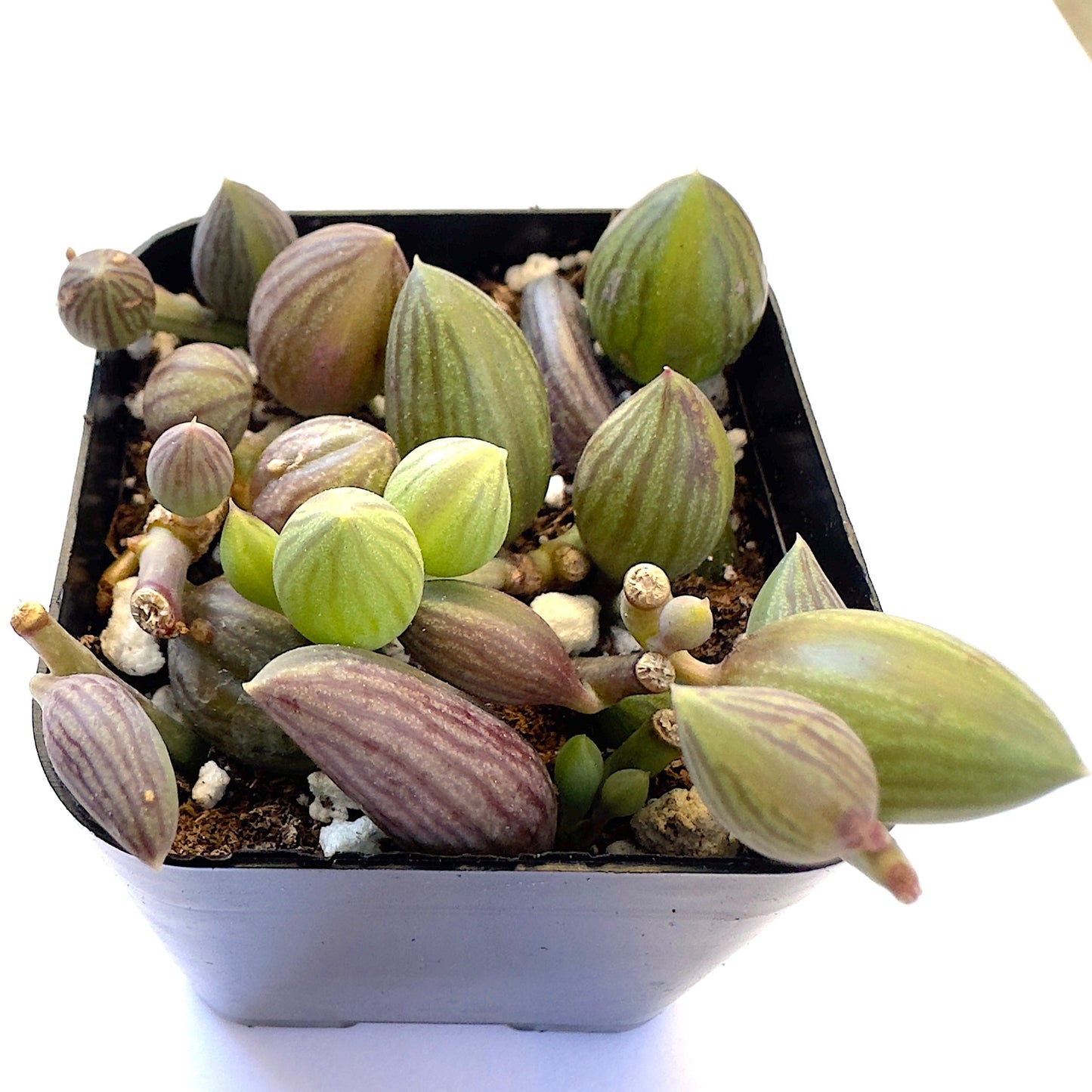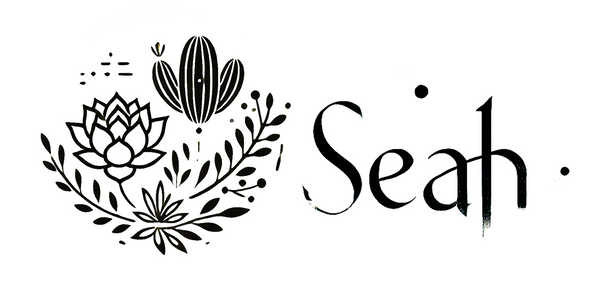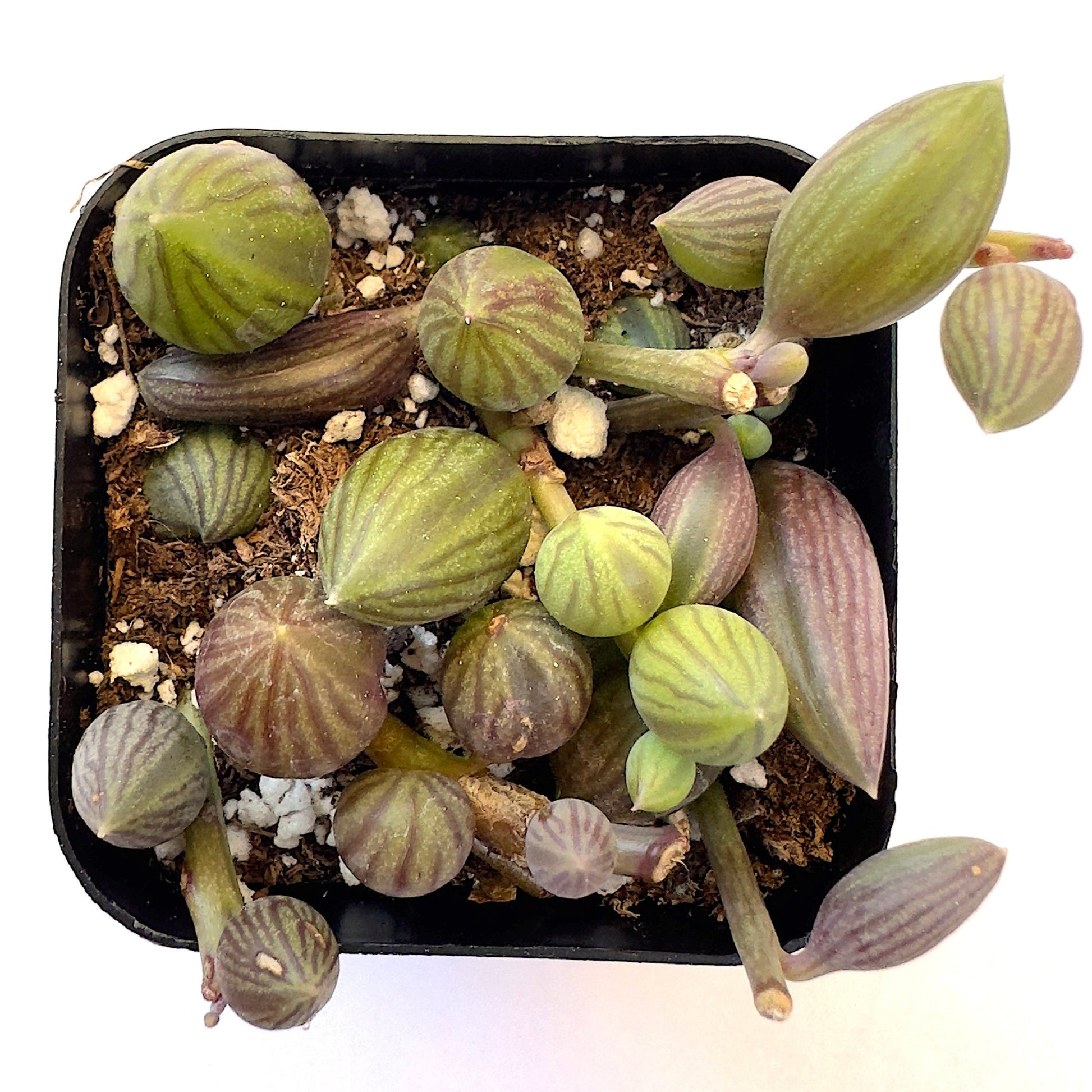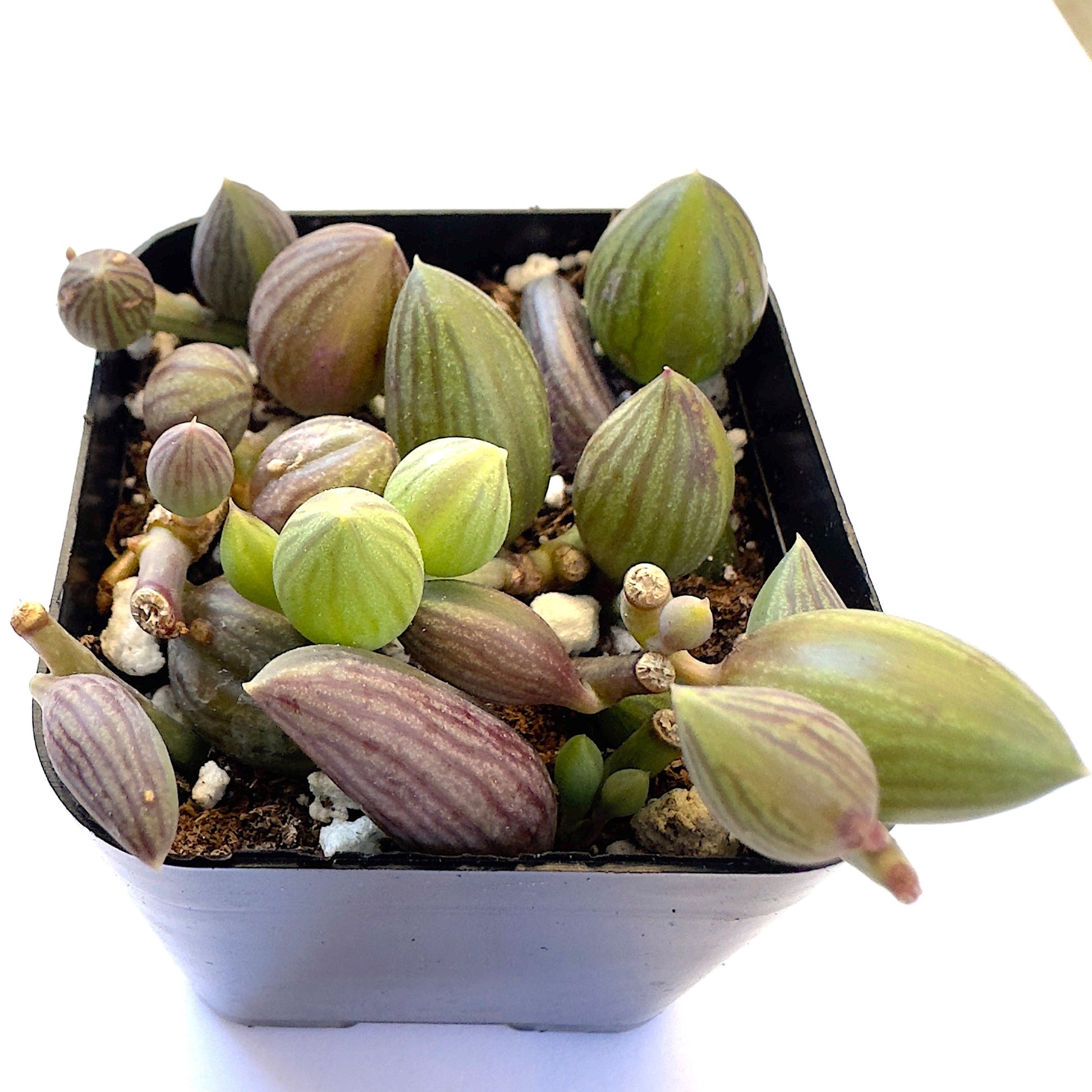SEAH
String of Watermelon – Senecio herreianus
String of Watermelon – Senecio herreianus
Precio habitual
$2.99 USD
Precio habitual
$4.99 USD
Precio de oferta
$2.99 USD
Precio unitario
/
por
Los gastos de envío se calculan en la pantalla de pago.
No se pudo cargar la disponibilidad de retiro
Senecio herreianus, commonly known as String of Watermelon, is a charming and unique succulent that belongs to the Asteraceae family. This decorative plant is popular among houseplant enthusiasts due to its distinctive appearance and relatively easy care. Here’s a detailed description of its morphological characteristics, growth habits, maintenance points, and reproduction methods.
Morphological Characteristics
- Structure: Senecio herreianus features long, trailing stems that can grow several feet in length. These stems are slender and bear closely spaced, fleshy leaves.
- Leaves: The leaves are the most distinctive feature of this plant, resembling small, plump watermelons. They are green with lighter, translucent stripes that run longitudinally, giving them a watermelon-like appearance. The leaves are typically about 0.5 to 1 inch long and are spherical or slightly elongated in shape.
- Flowers: The plant produces small, brush-like flowers that are generally white or pale pink. These flowers bloom in clusters from the tips of the stems, adding a subtle charm when they appear, usually in the fall or early winter.
Growth Habits
- Light: Senecio herreianus thrives in bright, indirect sunlight. Direct sunlight can scorch the leaves, while too little light can cause the stems to become leggy and the leaf color to fade.
- Temperature: It prefers temperatures between 60°F and 80°F (15°C to 26°C). It is not frost-tolerant and should be protected from temperatures below 50°F (10°C).
- Humidity: This plant does well in average indoor humidity but will appreciate occasional misting in very dry conditions.
Maintenance Points
- Watering: Like most succulents, the String of Watermelon prefers a "soak and dry" method for watering. Allow the soil to dry out completely between waterings to prevent root rot. Reduce watering in the winter when the plant's growth slows down.
- Soil: A well-draining succulent mix is crucial to prevent waterlogging and root diseases. Incorporating sand or perlite can enhance drainage.
- Feeding: Fertilize during the growing season (spring and summer) with a diluted balanced, liquid succulent fertilizer about once a month. Do not fertilize in the winter.
- Pruning: Regular pruning can help maintain a bushy, lush appearance and encourage more growth. It also helps control the length of the trails, keeping them from becoming too long and tangled.
Reproduction Method
-
Propagation: Senecio herreianus can be easily propagated from both leaf cuttings and stem cuttings.
- Leaf Cuttings: Simply pluck a leaf and let it callous for a few days before placing it on well-draining soil. Keep the soil lightly moist until roots begin to develop.
- Stem Cuttings: Cut a section of stem, let it callous for a few days to prevent rotting, and then plant it in succulent soil mix. Water sparingly until roots form.
Senecio herreianus is a delightful addition to any indoor garden, adding a touch of whimsy with its watermelon-like foliage. With proper care and occasional propagation, it can provide endless enjoyment and even become a conversation starter due to its unique appearance.
Care Tips
Care Tips
Compartir
